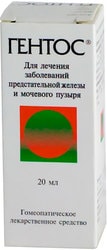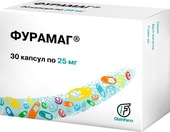Novitropan Tablets 5mg: Effective Relief for Urinary Incontinence and Bladder Control
Novitropan tablets (5mg) contain oxybutynin chloride, a medication that effectively relieves bladder spasms and improves urinary control. This comprehensive guide will provide you with detailed information on Novitropan, including its uses, dosages, potential side effects, and precautions.
What is Novitropan used for?
Novitropan is primarily prescribed for:
- Urinary incontinence: This condition occurs when you leak urine involuntarily due to bladder instability.
- Neurogenic bladder disorders: Novitropan helps manage bladder dysfunction caused by neurological conditions like multiple sclerosis or spina bifida.
- Nocturnal enuresis (bedwetting): In children over 5 years old, Novitropan can be used in combination with other therapies to address bedwetting issues.
How does Novitropan work?
Oxybutynin, the active ingredient in Novitropan, acts as an antispasmodic. It relaxes the smooth muscles of the bladder, reducing involuntary contractions and increasing bladder capacity. This helps control urine leakage and promotes better bladder control.
Dosage and Administration
Adults:
- Typical dose: 5 mg two or three times daily.
- Maximum dose: 5 mg four times daily (20 mg), if necessary, depending on individual response and tolerance.
Elderly patients:
- Start with a lower dose of 2.5 mg twice daily due to potential for prolonged half-life.
- Dosage may be adjusted based on individual response and tolerability.
Children:
- Under 5 years old: Not recommended.
- Over 5 years old:
- Neurogenic bladder disorders: Typically 2.5 mg twice daily, adjustable up to 5 mg two or three times daily.
- Nocturnal enuresis: Usually 2.5 mg twice daily, adjustable up to 5 mg twice or thrice daily. The last dose should be taken before bedtime.
Important Notes:
- Novitropan tablets are not divisible.
- If you require a dose less than 5mg, consider consulting with your doctor about alternative medications.
- Never double your dose to make up for a missed one.
- Do not stop taking Novitropan without first discussing with your doctor.
Pregnancy and Breastfeeding
Novitropan is contraindicated during pregnancy and breastfeeding. If you are pregnant, breastfeeding, or planning to become pregnant, consult with your doctor before using this medication.
Driving and Operating Machinery
Novitropan can cause drowsiness and dizziness. It is advised to avoid driving and engaging in other potentially hazardous activities that require concentration until you know how this medication affects you.
Precautions
General:
- Novitropan should be used with caution in frail elderly and children, who may be more sensitive to its effects.
- Patients with autonomic neuropathy, severe gastrointestinal motility disorders, hepatic or renal insufficiency should exercise caution.
- Anticholinergics may increase the risk of cognitive impairment in older adults.
Specific Conditions:
- Gastrointestinal diseases: Novitropan can impair gastrointestinal motility. Use with caution in patients with obstructive disorders, intestinal atony, or ulcerative colitis.
- Cardiovascular conditions: Novitropan may increase tachycardia. Exercise caution in patients with hyperthyroidism, congestive heart failure, cardiac arrhythmia, coronary heart disease, or hypertension.
- Prostate enlargement: Symptoms of prostatic hypertrophy may be aggravated by Novitropan.
- Glaucoma: Novitropan can lead to angle-closure glaucoma. Seek immediate medical attention if you experience sudden loss of vision or eye pain.
- Dry mouth: Novitropan can reduce salivary gland secretion, potentially contributing to dental problems.
- High temperatures: Novitropan can decrease sweating, making it essential to avoid high temperatures.
Children:
- Novitropan is not recommended for children under 5 years old.
- Children over 5 years old may be more sensitive to the drug's effects, requiring close monitoring.
Composition
Each tablet contains:
- Active ingredient: Oxybutynin chloride - 5.0 mg
- Auxiliary components: Lactose monohydrate, corn starch, povidone, magnesium stearate, calcium carboxymethylcellulose, indigo carmine (E 132)
Interactions with Other Drugs
Inform your doctor about all medications you are currently taking or have recently taken, including over-the-counter drugs and herbal supplements.
- Increased anticholinergic effects: Novitropan's effects may be amplified when used with other anticholinergics or anticholinergic drugs like amantadine, antiparkinsonian medications, antihistamines, neuroleptics, quinidine, digitalis preparations, tricyclic antidepressants, atropine, and atropine-like antispasmodics.
- Gastrointestinal motility: Novitropan may affect the absorption of other drugs by reducing stomach motility.
- CYP3A4 inhibitors: Concomitant use with CYP3A4 inhibitors can slow down oxybutynin metabolism, increasing its plasma concentration.
- Cholinesterase inhibitors: Combined use may decrease the effectiveness of cholinesterase inhibitors.
- Alcohol: Alcohol can enhance drowsiness caused by Novitropan. Avoid alcohol during treatment.
Contraindications
Do not use Novitropan if you:
- Are allergic to oxybutynin or any of the inactive ingredients.
- Have open- or closed-angle glaucoma.
- Have gastrointestinal obstruction, paralytic ileus, or intestinal atony.
- Have expansion of the colon (including toxic, complicated by ulcerative colitis).
- Have ulcerative colitis.
- Have myasthenia gravis.
- Have obstructive uropathy.
- Are currently bleeding.
- Are under 5 years old.
- Are pregnant or breastfeeding.
Overdose
Symptoms:
- Central nervous system excitation: Anxiety, tremor, irritability, convulsions, delirium, hallucinations.
- Fever.
- Gastrointestinal disturbances: Nausea, vomiting.
- Cardiovascular effects: Tachycardia, decreased or increased blood pressure.
- Respiratory failure.
- Paralysis.
- Coma.
Treatment:
- Seek immediate medical attention.
- Gastric lavage may be performed.
- Activated charcoal and saline laxative may be administered.
- Respiratory support may be required.
- Anticholinesterase drugs (physostigmine) can be used to reduce anticholinergic intoxication symptoms.
- Cold compresses and alcohol rubs may help manage hyperpyrexia.
Side Effects
The most common side effects of Novitropan include:
- Constipation
- Dry mouth
- Nausea
- Dizziness
- Headache
- Drowsiness
- Visual disturbances
Other potential side effects include:
- Urinary retention
- Difficulty urinating
- Diarrhea
- Vomiting
- Confusion
- Agitation
- Anxiety
- Hallucinations
- Cognitive impairment
- Tachycardia
- Dry skin
If you experience any side effects, talk to your doctor.
Storage
Store Novitropan in a dry place at room temperature, below 25°C. Keep out of reach of children.
Where to Buy Novitropan
Novitropan is available by prescription only. Please consult with your doctor to discuss whether this medication is appropriate for you.
This information is intended for general knowledge and should not be considered a substitute for professional medical advice. Always consult with your doctor before starting any new medication.






